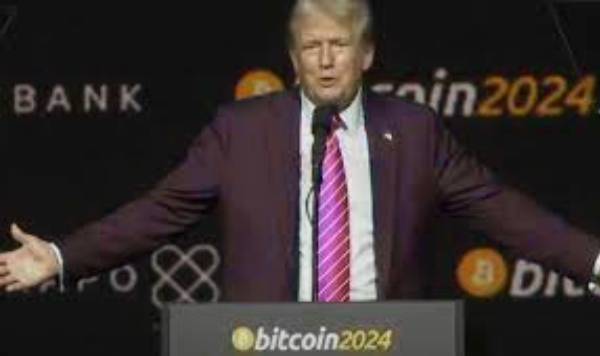As Bitcoin and other cryptocurrencies gain traction in various sectors, they are also making their mark in the political arena. The intersection of digital currencies and election processes is changing quickly. This change promises to reshape the way campaigns are financed. It also affects how candidates engage with voters. The purpose of this article is to examine the role of Bitcoin in US elections. It highlights its influence on fundraising, voter behavior, and campaign strategies. We will also look into challenges and the future landscape of political finance.
The Rise of Bitcoin in US Politics
Bitcoin was introduced to the world in 2009. It was a decentralized digital currency. The aim was to provide a new financial instrument without the need for intermediaries. Initially embraced by tech enthusiasts and libertarians, Bitcoin has gradually made its way into mainstream politics. Milestones such as the 2014 campaign of Ron Paul, which accepted Bitcoin donations, marked significant shifts in political finance. Over the years, more candidates and parties have followed suit. They are accepting Bitcoin as a legitimate form of donation. This move has garnered attention and support from new voter demographics.
Bitcoin as a Campaign Fundraising Tool
One of the most notable aspects of Bitcoin in politics is its impact on campaign fundraising. Unlike traditional donation methods, Bitcoin offers a unique advantage. It allows for borderless contributions. It facilitates smaller transactions and offers the potential for anonymity. In the 2020 elections, several candidates embraced Bitcoin donations. Andrew Yang and Elizabeth Warren were among these candidates. They recognized the cryptocurrency’s potential to harness digital engagement.
However, the regulatory landscape surrounding cryptocurrency donations presents challenges. The Federal Election Commission has established guidelines for how campaigns can accept Bitcoin. These guidelines emphasize transparency. They ensure compliance with existing campaign finance laws. The evolving nature of these regulations will be crucial as digital currencies continue to influence political funding.
Impact of Cryptocurrency on Voter Behavior
Bitcoin users come from diverse backgrounds. They tend to share certain demographic characteristics. For instance, they are more likely to be younger and more technologically savvy. Studies suggest that Bitcoin ownership correlates with specific political leaning, often favoring libertarian and progressive ideologies. This demographic profile signals an engaged voter base. They may be more energized to participate in elections. This is especially true when candidates align with their views on financial freedom and decentralization.
The question of whether Bitcoin acceptance sways voter opinions is still under exploration. However, campaigns that effectively incorporate cryptocurrency into their platforms may capture the support of tech-driven voters who value innovation.
The Role of Bitcoin in Election Strategy
Political campaigns are increasingly leveraging Bitcoin and blockchain technology as part of their election strategies. From conducting transparent fundraising to implementing smart contracts, campaigns are innovating their approaches to gain an edge. Additionally, targeted advertising campaigns utilizing blockchain data can help candidates reach specific voter segments more effectively.
However, the integration of Bitcoin into election strategies presents challenges. Some campaigns may struggle with the technical aspects of cryptocurrency usage. The associated volatility in value could complicate budgeting for campaign activities.
Challenges and Controversies

Despite its potential, Bitcoin’s involvement in politics raises important concerns. Issues around transparency, the potential for anonymous donations, and the risks of fraud or misuse are significant discussions in the political discourse. Critics argue that the anonymity provided by Bitcoin could facilitate illicit contributions. It could also allow manipulation of election outcomes. This situation challenges the integrity of democratic processes.
Regulatory bodies are grappling with how to effectively govern these new realities. As cryptocurrencies become more prevalent, establishing frameworks that balance innovation with accountability will be paramount.
Future of Bitcoin in US Elections
Looking ahead, the role of Bitcoin and cryptocurrencies in US elections is likely to grow in importance. Predictions suggest that upcoming elections will see an even more significant influx of digital currency donations, driven by continuous advancements in technology and growing public interest.
As regulatory frameworks evolve, we may also witness new policies that either support or challenge the role of cryptocurrencies in political finance. The long-term implications of Bitcoin’s influence on the democratic process will hinge on how these challenges are addressed and the public perception of digital currencies in the electoral context.












Leave a Reply